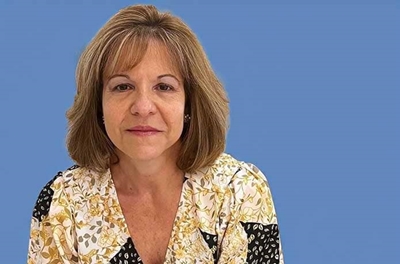On the Frontlines: Rebuilding Trust
Blogs Betina G. Airoldi, CIA, CRMA, CAMS, PMP Sep 17, 2024

Throughout our professional career, many of us have heard the phrase, "Internal audit is only as good as its last audit." Whether we agree with this statement or not, the reality is that just one bad experience can damage the audit client’s trust that took a significant effort to earn. So, this begs the question: How do you rebuild that trust even if you did not cause the problem?
There are various ways to deal with this situation, but one element stands out: Transparency. This is the fundamental “T” in rebuilding trust.
Transparency simply means doing what you said you were going to do, no matter how small the task. You must demonstrate consistency to regain trust.
If you have agreed to a daily debrief at 4 p.m., be punctual and prepared to answer questions. Keep the discussion concise. If there are issues to address, focus on those, but if not, simply communicate that and avoid unnecessary conversations. Honesty is generally appreciated in these situations. If an emergency arises and you cannot keep your commitment, inform the relevant parties in advance and reschedule, ideally for the same day, to show that you are true to your word.
Demonstrate transparency also by showing that there is no hidden agenda. Make it clear that your objective is to review and improve processes. Emphasize to your clients that you are auditing the processes, not the people involved, and focus the conversation on the process, rather than on them personally. Emphasize your willingness to work collaboratively and flexibly to minimize disruptions to their work, while also reminding them that you have a plan to follow, which will require a collaborative effort.
Other actions to consider:
Choose your battles carefully. Your priority is to rebuild trust, so try to be flexible with some of the tasks. For example, when providing a list of required documentation, highlight the two or three most critical items. This will give management additional time to prepare the remaining documents. They will appreciate your thoughtfulness.
Meet with the audit client before the engagement begins, or at least before starting the fieldwork. If possible, meet in person and avoid a crowded audience to allow for a more private conversation. This makes it easier to address concerns. The face-to-face approach may seem overrated, but it can be key to understanding underlying issues or attitudes. However, remember that this approach may not be possible, depending on whether the audit will be performed in person or remotely. If not, coordinate a video call.
Seek to understand the cause of any distrust and avoid pushing back. Defending previous actions will not add value. Remember that you cannot impose trust; you must earn it. Like it or not, perception is reality, but you have the power to change it. Instead of resisting, move forward, ask about your client’s expectations and needs, and listen. Sometimes, just having an open discussion is enough. You may be surprised to learn that their request may be as simple as receiving daily feedback on progress. Remember that you are the one "building the bridge" to trust, so be flexible.
Have a private discussion after finalizing the audit. Revisit your client’s concerns and address additional matters, if any. Keep in mind that rebuilding trust is not a one-time exercise but an ongoing process that requires multiple interactions. Consistency is crucial to succeed.
Avoid surprises. The report should reflect the discussions held during the review and the closing meeting. If additional issues arise after these discussions, promptly inform your clients of the situation. Give your clients time to read the full report before it is published. This allows for any remaining concerns to be addressed and demonstrates that you did what you said you would do; in other words, you are being transparent. While they may not agree 100%, they will appreciate the gesture.
Ultimately, transparency is the key to creating a professional environment where goals are achieved, rather than a hostile one that demands extra effort and causes unnecessary stress. As auditors, we aim to be the trusted advisors that management calls when issues arise. As such, building and bolstering trust is essential.


